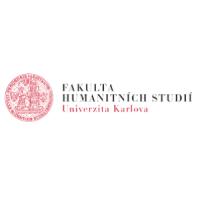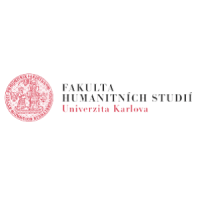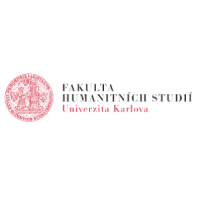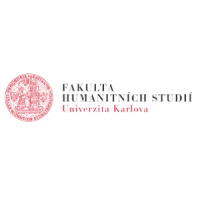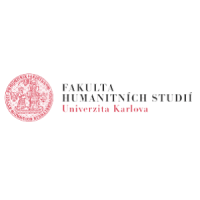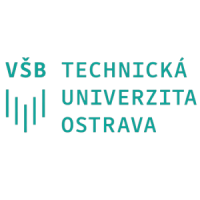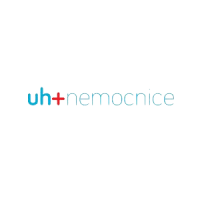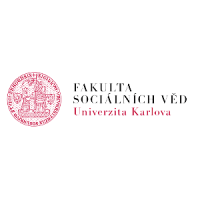Queering 20th-Century East Central Europe: Archives – Emotions – Histories
Fakulta humanitních studií UK se podílí na organizaci mezinárodní konference Queering 20th-Century East Central Europe: Archives – Emotions – Histories, která se uskuteční v květnu 2026 v Praze a zaměří se na historii LGBTQIA+ zkušeností v hospodářském, sociálním a kulturním kontextu střední a východní Evropy 20. století. Konference navazuje na předchozí workshopy a vybízí k interdisciplinárnímu dialogu zaměřenému na archivy, emoce a historiografii queer historie, s klíčovým přednášejícím prof. Ann Cvetkovich. Účastnit se mohou jak výzkumníci zpracovávající pokročilé projekty, tak noví přispěvatelé, přičemž je podporována otevřenost, inovace a mezinárodní spolupráce.
FHS se zapojí do organizace mezinárodní konference Queering 20th-Century East Central Europe: Archives – Emotions – Histories, která se zabývá historií zkušeností LGBTQIA+ napříč dvacátým stoletím. Níže naleznete informace ke konferenčním příspěvkům.
O konferenci v angličtině
International Conference | May 26 – 28, 2026 | Prague
CfP in PDF
The Prague Branch of the German Historical Institute Warsaw (Part of the Max Weber Foundation), in cooperation with the Faculty of Humanities at Charles University in Prague, the Institute of Contemporary History of the Czech Academy of Sciences, and the Herder Institute for Historical Research on East Central Europe (Institute of the Leibniz Association), invites scholars to participate in the follow-up conference, which will be held in May 2026 in Prague.
The conference aims to advance and consolidate research on the histories of gender and sexual diversity, queer lives, and LGBTQIA+ experiences in East Central Europe throughout the twentieth century. Although pioneering studies have already opened this field, scholarship on the region remains comparatively limited. The cultural, social, and political trajectories of queer lives in East Central Europe are still only partially integrated into the broader historiography. Shaped by the overlapping legacies of empire, war, authoritarian regimes, state socialism, and post-socialist transition and transformation, these histories complicate linear narratives of progress and call for innovative methodological and comparative approaches.
In Prague, we invite participants to approach these questions through the lenses of archives, emotions, and histories. Attention to secrecy and disclosure, to silences and absences in the archive, and to the affective dimensions of memory and everyday life opens up new ways of writing queer histories in the region. These perspectives not only uncover hidden or suppressed voices but also reimagine the very forms of knowledge and evidence on which queer historiography can be built.
Prof. Ann Cvetkovich (University of Texas at Austin) will deliver the keynote lecture “Feeling My Way through the Archives: A Journey in Queer Method” to frame and inspire our discussions. Her influential work on the archive of feelings and on the intersections of affect, memory, and queer culture has profoundly shaped queer studies and historiography. Therefore, her speech will provide a conceptual anchor for exploring how emotions, archives, and intimate experiences can serve as vital sources for rethinking queer histories in 20th-century East Central Europe.
Inclusive follow-up event
This conference builds on the preparatory workshop held in Marburg in 2025, where researchers began conceptualizing queer histories in East Central Europe and presented early stages of their projects. In Prague, we seek to carry this conversation forward by bringing the original group into dialogue with a broader community of scholars. Participants from the workshop will present further developed versions of their work, while the conference also invites new contributors whose research is at an advanced stage and ready for publication.
The event is thus conceived as both a continuation and an expansion: it refines the debates initiated in Marburg while opening space for new perspectives, approaches, and case studies. Depending on the range of submissions, the program may combine a workshop-style format with a broader conference setting. The ultimate goal is to situate individual papers within wider historiographical debates and to prepare contributions for a planned special issue(s) or edited volume, reflecting the intellectual directions developed across both events.
Themes and scopes
The conference continues to explore queer lives and identities in East Central Europe across the twentieth century, situating them within broader political, social, and cultural transformations. We invite contributions that address queer experiences in their full diversity, from imperial and interwar contexts through wartime occupations and state socialist regimes to post-socialist transitions and contemporary anti-gender mobilizations, while also addressing the wider social, cultural, and political contexts that shaped them.
Relevant themes include, but are not limited to:
-
Archives and closets: silences, secrecy, and concealment; queer archives and counter-archives; memory production, storytelling, and the politics of absence.
-
Forms of knowledge: institutional and non-institutional ways of knowing sexuality and gender; sexology and its alternatives; grassroots, activist, and peripheral epistemologies.
-
Affect and belonging: queer emotions, intimacy, and friendship; affect as a mode of historical and political engagement.
-
Alternative queer chronologies: tracing queer lives across imperial, interwar, wartime, socialist, and post-socialist contexts, while foregrounding non-linear rhythms, temporal ruptures, and continuities that disrupt conventional political histories.
-
Networks, resistance, and survival: everyday practices, community formations, and strategies of resilience, including those that sustained alternative publics and claims to rights under shifting political regimes, from authoritarianism to democracy.
-
Historical transformations: regulation of sexuality and gender across empires, interwar modernities, fascism, socialism, and post-socialist transitions, together with shifting legal, medical, and cultural frameworks and the reconfigurations of intimacy, sexuality, and community under changing political orders.
-
Practices and cultural arenas: everyday cultural and social practices, ranging from nightlife and media to sport, performance, and popular culture, as sites where queer identities were enacted, negotiated, and contested.
-
Intersectionality and marginalization: the entanglements of sexuality and gender with race, class, disability, religion, and migration; experiences of Romani, Jewish, Muslim, and other marginalized queer communities.
-
Comparative and transnational perspectives: migration, exile, displacement, and cross-border solidarities; connections between East Central Europe, the former Soviet Union, Western Europe, and the Global South.
We particularly welcome contributions that cross temporal, spatial, and disciplinary boundaries, experiment with sources and methodologies, and interrogate the role of archives, memory, and affect. The conference aims to bring together scholars from across the humanities and social sciences, fostering the kind of interdisciplinary dialogue that is essential for understanding queer histories.
A Collaborative and Inclusive Safe Space
This conference is committed to building an inclusive, intellectually open space that supports both emerging and established scholars working across disciplines. We encourage contributions that are methodologically innovative and intersectional in perspective. The event will foster constructive feedback and transnational exchange among researchers engaged in shaping queer historical scholarship in the region.
While in-person participation is strongly encouraged to facilitate informal exchange and networking, hybrid attendance may be possible in selected cases.
Financial Support
Accommodation for two nights in Prague will be provided. A limited number of travel grants are available upon request; please indicate in your application if you wish to be considered for reimbursement.
Practical Information
Conference language: English.
Presentation length: 15 to 25 minutes, depending on the final number of accepted contributions.
Contribution length: 5 to 10 thousand words, including title, abstract, footnotes, and bibliography.
Format: on-site.
Venue: Prague, Czech Republic, EU.
Submission Guidelines:
Please submit an abstract (250 words) and a short biography (100 words) in a one PDF file by November 16, 2025, with the subject QUEERING HISTORIES to
[e-mail]Please note if you are a follow-up or a new participant.
Important Dates
Submission Deadline: November 16, 2025
Notification of Acceptance: December 8, 2025
Submission of Papers: April 26, 2026
Conference Date: May 26-28, 2026
If you have any inquiries, please contact
[e-mail] .We look forward to your submissions and to advancing the discourse on queer histories in East Central Europe.
Scientific Board
Dr. Martin Babička, Czech Academy of Sciences, Institute of Contemporary History
Dr. Anna Dobrowolska, University of Basel
Dr. Jaromír Mrňka, Max Weber Foundation, German Historical Institute Warsaw
Dr. Rasa Navickaitė, Vilnius University
Prof. Dr. Judit Takács, ELTE Centre for Social Sciences, Budapest
Advisory Board
Assoc. Prof. Dr. Kateřina Kolářová, Charles University, Faculty of Humanities
Dr. Michal Pitoňák, Charles University, Faculty of Humanities
Assoc. Prof. Dr. Věra Sokolová, Charles University, Faculty of Humanities
Dr. Josef Šebek, Charles University, Faculty of Arts
FHS se zapojí do organizace mezinárodní konference Queering 20th-Century East Central Europe: Archives – Emotions – Histories, která se zabývá historií zkušeností LGBTQIA+ napříč dvacátým stoletím. Níže naleznete informace ke konferenčním příspěvkům.
International Conference | May 26 – 28, 2026 | Prague
CfP in PDF
The Prague Branch of the German Historical Institute Warsaw (Part of the Max Weber Foundation), in cooperation with the Faculty of Humanities at Charles University in Prague, the Institute of Contemporary History of the Czech Academy of Sciences, and the Herder Institute for Historical Research on East Central Europe (Institute of the Leibniz Association), invites scholars to participate in the follow-up conference, which will be held in May 2026 in Prague.
The conference aims to advance and consolidate research on the histories of gender and sexual diversity, queer lives, and LGBTQIA+ experiences in East Central Europe throughout the twentieth century. Although pioneering studies have already opened this field, scholarship on the region remains comparatively limited. The cultural, social, and political trajectories of queer lives in East Central Europe are still only partially integrated into the broader historiography. Shaped by the overlapping legacies of empire, war, authoritarian regimes, state socialism, and post-socialist transition and transformation, these histories complicate linear narratives of progress and call for innovative methodological and comparative approaches.
In Prague, we invite participants to approach these questions through the lenses of archives, emotions, and histories. Attention to secrecy and disclosure, to silences and absences in the archive, and to the affective dimensions of memory and everyday life opens up new ways of writing queer histories in the region. These perspectives not only uncover hidden or suppressed voices but also reimagine the very forms of knowledge and evidence on which queer historiography can be built.
Prof. Ann Cvetkovich (University of Texas at Austin) will deliver the keynote lecture “Feeling My Way through the Archives: A Journey in Queer Method” to frame and inspire our discussions. Her influential work on the archive of feelings and on the intersections of affect, memory, and queer culture has profoundly shaped queer studies and historiography. Therefore, her speech will provide a conceptual anchor for exploring how emotions, archives, and intimate experiences can serve as vital sources for rethinking queer histories in 20th-century East Central Europe.
This conference builds on the preparatory workshop held in Marburg in 2025, where researchers began conceptualizing queer histories in East Central Europe and presented early stages of their projects. In Prague, we seek to carry this conversation forward by bringing the original group into dialogue with a broader community of scholars. Participants from the workshop will present further developed versions of their work, while the conference also invites new contributors whose research is at an advanced stage and ready for publication.
The event is thus conceived as both a continuation and an expansion: it refines the debates initiated in Marburg while opening space for new perspectives, approaches, and case studies. Depending on the range of submissions, the program may combine a workshop-style format with a broader conference setting. The ultimate goal is to situate individual papers within wider historiographical debates and to prepare contributions for a planned special issue(s) or edited volume, reflecting the intellectual directions developed across both events.
The conference continues to explore queer lives and identities in East Central Europe across the twentieth century, situating them within broader political, social, and cultural transformations. We invite contributions that address queer experiences in their full diversity, from imperial and interwar contexts through wartime occupations and state socialist regimes to post-socialist transitions and contemporary anti-gender mobilizations, while also addressing the wider social, cultural, and political contexts that shaped them.
Archives and closets: silences, secrecy, and concealment; queer archives and counter-archives; memory production, storytelling, and the politics of absence.
Forms of knowledge: institutional and non-institutional ways of knowing sexuality and gender; sexology and its alternatives; grassroots, activist, and peripheral epistemologies.
Affect and belonging: queer emotions, intimacy, and friendship; affect as a mode of historical and political engagement.
Alternative queer chronologies: tracing queer lives across imperial, interwar, wartime, socialist, and post-socialist contexts, while foregrounding non-linear rhythms, temporal ruptures, and continuities that disrupt conventional political histories.
Networks, resistance, and survival: everyday practices, community formations, and strategies of resilience, including those that sustained alternative publics and claims to rights under shifting political regimes, from authoritarianism to democracy.
Historical transformations: regulation of sexuality and gender across empires, interwar modernities, fascism, socialism, and post-socialist transitions, together with shifting legal, medical, and cultural frameworks and the reconfigurations of intimacy, sexuality, and community under changing political orders.
Practices and cultural arenas: everyday cultural and social practices, ranging from nightlife and media to sport, performance, and popular culture, as sites where queer identities were enacted, negotiated, and contested.
Intersectionality and marginalization: the entanglements of sexuality and gender with race, class, disability, religion, and migration; experiences of Romani, Jewish, Muslim, and other marginalized queer communities.
Comparative and transnational perspectives: migration, exile, displacement, and cross-border solidarities; connections between East Central Europe, the former Soviet Union, Western Europe, and the Global South.
We particularly welcome contributions that cross temporal, spatial, and disciplinary boundaries, experiment with sources and methodologies, and interrogate the role of archives, memory, and affect. The conference aims to bring together scholars from across the humanities and social sciences, fostering the kind of interdisciplinary dialogue that is essential for understanding queer histories.
This conference is committed to building an inclusive, intellectually open space that supports both emerging and established scholars working across disciplines. We encourage contributions that are methodologically innovative and intersectional in perspective. The event will foster constructive feedback and transnational exchange among researchers engaged in shaping queer historical scholarship in the region.
While in-person participation is strongly encouraged to facilitate informal exchange and networking, hybrid attendance may be possible in selected cases.
Accommodation for two nights in Prague will be provided. A limited number of travel grants are available upon request; please indicate in your application if you wish to be considered for reimbursement.
Conference language: English.
Presentation length: 15 to 25 minutes, depending on the final number of accepted contributions.
Contribution length: 5 to 10 thousand words, including title, abstract, footnotes, and bibliography.
Format: on-site.
Venue: Prague, Czech Republic, EU.
Please submit an abstract (250 words) and a short biography (100 words) in a one PDF file by November 16, 2025, with the subject QUEERING HISTORIES to
Please note if you are a follow-up or a new participant.
Important Dates
Submission Deadline: November 16, 2025
Notification of Acceptance: December 8, 2025
Submission of Papers: April 26, 2026
Conference Date: May 26-28, 2026
If you have any inquiries, please contact
We look forward to your submissions and to advancing the discourse on queer histories in East Central Europe.
Scientific Board
Dr. Martin Babička, Czech Academy of Sciences, Institute of Contemporary History
Dr. Anna Dobrowolska, University of Basel
Dr. Jaromír Mrňka, Max Weber Foundation, German Historical Institute Warsaw
Dr. Rasa Navickaitė, Vilnius University
Prof. Dr. Judit Takács, ELTE Centre for Social Sciences, Budapest
Advisory Board
Assoc. Prof. Dr. Kateřina Kolářová, Charles University, Faculty of Humanities
Dr. Michal Pitoňák, Charles University, Faculty of Humanities
Assoc. Prof. Dr. Věra Sokolová, Charles University, Faculty of Humanities
Dr. Josef Šebek, Charles University, Faculty of Arts

